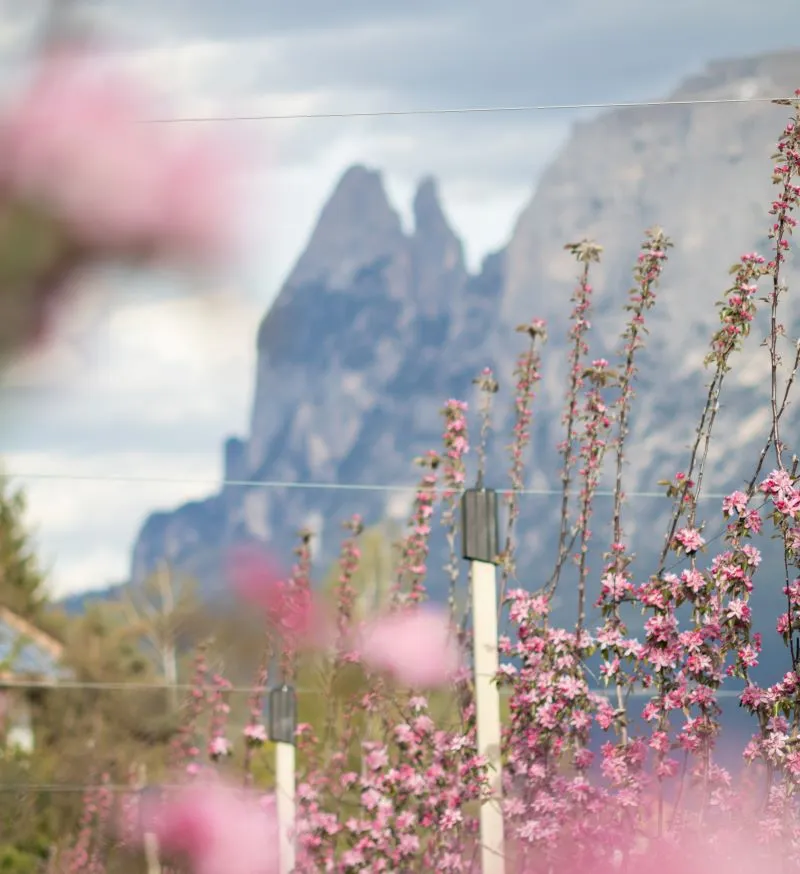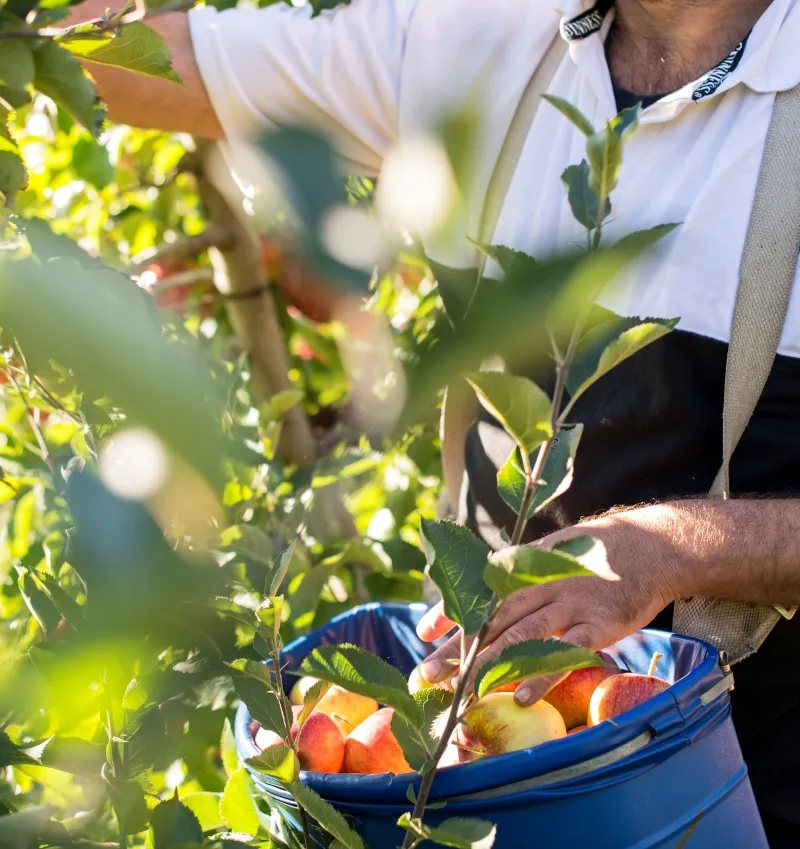

When wine is described, people often speak of the terroir. As apple growers, we do that too. For us, terroir is the interplay of many factors that determine the character of our apples. What nature provides us with is the soil, topography and microclimate. Then there is the weather, which in our part of the world involves distinctive seasons. Our contribution consists of planting, protecting, pruning and general care of the trees.
Our apples grow in our own orchards at almost 1,000 metres above sea level where the air is pure and fresh. Every apple variety has its preferences, and we select the best sites for each variety accordingly. The sites are all extremely sunny, with the exposure varying between east and southwest. This means the morning sun warms the trees. In spring, when the nights can still be very cold, that is important for the development of the fruit.
Our apples grow in our own orchards at almost 1,000 metres above sea level where the air is pure and fresh. Every apple variety has its preferences, and we select the best sites for each variety accordingly. The sites are all extremely sunny, with the exposure varying between east and southwest. This means the morning sun warms the trees. In spring, when the nights can still be very cold, that is important for the development of the fruit.
After a sunny summer day, the trees enjoy the cool mountain wind, which sets in in the late afternoon. Because of the big differences in temperature between day and night and also between the seasons, the apples grow quite slowly. That gives them time to develop their taste in full. In the end, it is concentrated, clear and distinctive for each variety.
Almost everything in the orchard is in the hands of nature. We can provide little more than good care and attention for the trees and apples. We simply try to preserve all the fine characteristics of the apples, from the tree to the glass. The daily tour of inspection through the orchards is a pleasurable task. Anyone who played among apple trees as a child can tell whether the trees are doing well.
Almost everything in the orchard is in the hands of nature. We can provide little more than good care and attention for the trees and apples. We simply try to preserve all the fine characteristics of the apples, from the tree to the glass. The daily tour of inspection through the orchards is a pleasurable task. Anyone who played among apple trees as a child can tell whether the trees are doing well.


Of course, nature can be challenging, too. Not all creatures are great and small, and not everything that falls from the skies is good for our trees. We are not interested in fruit with perfect looks; our apples must be healthy and full of flavour. For that reason, we sometimes have to resort to – extremely gentle – tree protection measures. In many cases, we can rely on useful insects to keep our trees healthy.
In the case of a late frost or hailstorm, so many blossoms or fruits may be damaged that an apple variety fails completely or the harvest is greatly reduced. Where nature is involved, you do not have everything under control. Our dearest allies are the busy bees. During their search for food, they perform the invaluable task of pollination, without which there would be no apples.
In the case of a late frost or hailstorm, so many blossoms or fruits may be damaged that an apple variety fails completely or the harvest is greatly reduced. Where nature is involved, you do not have everything under control. Our dearest allies are the busy bees. During their search for food, they perform the invaluable task of pollination, without which there would be no apples.
We cherish the terroir that the Ritten offers our apples and use the natural resources there as sparingly as possible.
After pressing the apples, for example, we deliver the remains (pomace) to farmers in our village, who use it to feed their cows. In return they give us cow dung, which we spread in the orchards.
An apple is a miracle. It reflects the year’s weather: every storm, all the rain, all the hours of sunshine. It tells us about the soil, about the insects, about the care and attention lavished. This narrative is concentrated in the juice.
After pressing the apples, for example, we deliver the remains (pomace) to farmers in our village, who use it to feed their cows. In return they give us cow dung, which we spread in the orchards.
An apple is a miracle. It reflects the year’s weather: every storm, all the rain, all the hours of sunshine. It tells us about the soil, about the insects, about the care and attention lavished. This narrative is concentrated in the juice.

